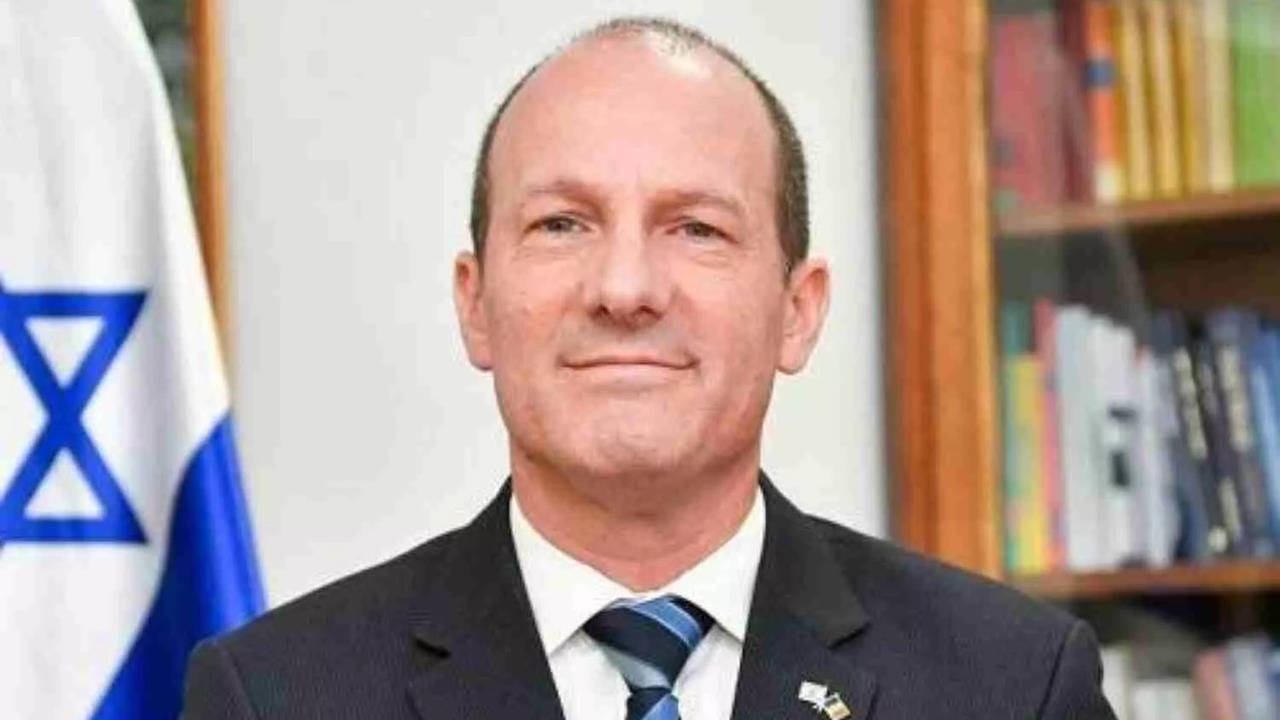Table of Contents

As Israel navigates a war on two fronts against Hamas and Hezbollah, the country's ambassador to India, Reuven Azar, stated that Israel's actions are driven by the need to counter radicalism and ensure peace and stability. Azar talked about current events, including claims that Israel was involved in pager and walkie-talkie explosions in Lebanon, ongoing military operations, and the reaction of the international community to Israel's activities, in an exclusive interview with NDTV.
Israel's Hybrid Warfare Strategy
Azar answered inquiries on the blasts in Lebanon that left hundreds injured and at least 37 dead. He underlined that conventional and unconventional methods have been used to create a hybrid kind of modern warfare. Given the variety of challenges Israel confronts, he contended, it is imperative that it defend itself and continue to be able to surprise its adversaries.
"In the past, wars were against conventional armies or terrorism, but today, war has a hybrid nature," Azar told NDTV. "We have been attacked more than any other country in modern times, with threats from rockets, missiles, cyberattacks, and attacks from land, sea, and air."
He further explained that Israel’s strategy aims to not only protect its citizens but also disrupt the tactics used by hostile forces. "We need to create a situation where we can defend ourselves and surprise our enemies. Our actions are necessary to counter those who use unethical and unconventional methods of warfare."
Focus on Northern Front
Israel launched strikes on southern Lebanon as part of “Operation Northern Arrows,” which resulted in the deaths of over 550 people, including 50 children, amid rising tensions. Over 1,500 alleged Hezbollah locations—many of which, according to Azar, were incorporated into residential areas—were attacked by Israeli forces.
Azar said that Hezbollah had committed "double war crimes" by embedding military equipment in civilian dwellings and launching assaults from these places, in response to worries over a high number of civilian deaths. "We have meticulously gathered intelligence on these sites for years, targeting thousands of missiles to prevent further harm to Israeli civilians," he said. He acknowledged civilian deaths but insisted that efforts were made to evacuate residents, including phone calls and intercepted radio communications.
Appeal for Diplomatic Resolution
Even as Hezbollah persisted in its strikes, Azar reaffirmed that Israel has been seeking diplomatic solutions with the United States and does not wish conflict. He said a truce could be reached if Hezbollah followed a UN decision and withdrew from the border.
"This war can stop immediately if Hezbollah stops its provocations and respects international resolutions. We want to see our civilians return to their homes and resume normal lives," Azar said during the NDTV interview.
Israel's Stand on Civilian Safety
Tens of thousands of people have been evacuated from southern Lebanon, as Azar emphasized Israel’s resolve to limiting harm to civilians. He asserted that Israel’s measures have been important in preventing bigger harm and highlighted that every loss of life is regrettable. He did point out, though, that military actions intended to eradicate threats sometimes come at the expense of public safety.
Support from the US and India
Azar noted the great support Israel has gotten from allies, notably the United States and India. He took note of India’s decision not to endorse a resolution by the UN General Assembly that called for Israel to leave the Occupied Palestinian Territory, seeing it as support for a practical solution to the issue.
"We appreciate India's support since October 7 last year and their recognition of Israel’s right to self-defense," Azar commented during the NDTV interview. He emphasized the need for international cooperation to combat radicalism in West Asia, which he identified as a major source of regional instability.
Future of Israel-India Relations
Azar highlighted Prime Minister Narendra Modi’s recent meeting with Palestinian President Mahmoud Abbas and thanked India for its impartial attitude. He was hopeful that when stability returned, Israel and other sensible nations could serve as a link between India and Europe.
In his closing remarks during the NDTV interview, Azar reiterated Israel's desire for peace and stability and urged friends to continue helping the country fulfill this objective. He underscored that Israel will continue to fight terrorist groups, emphasizing that only by taking bold and calculated measures could stability be achieved.

